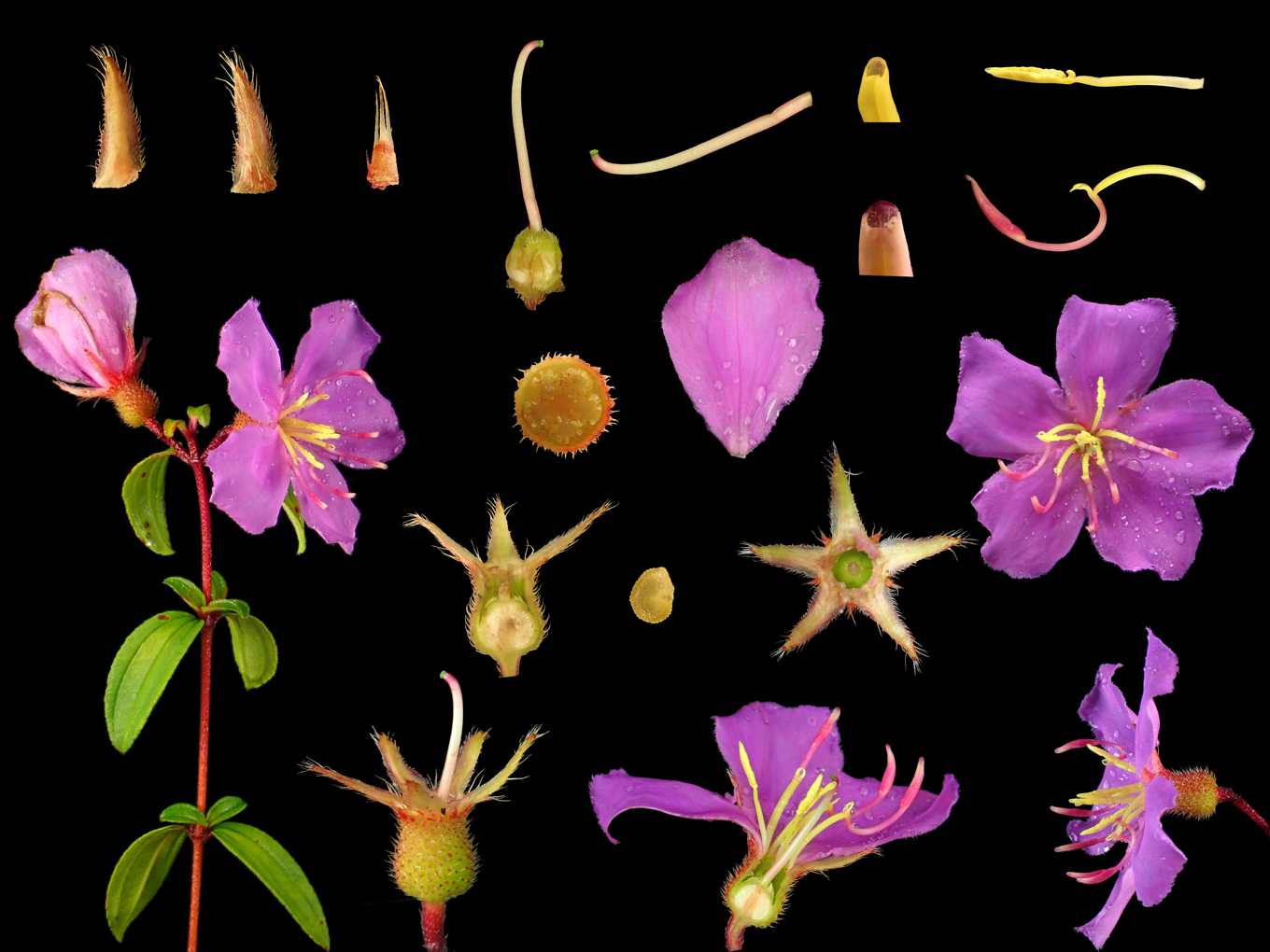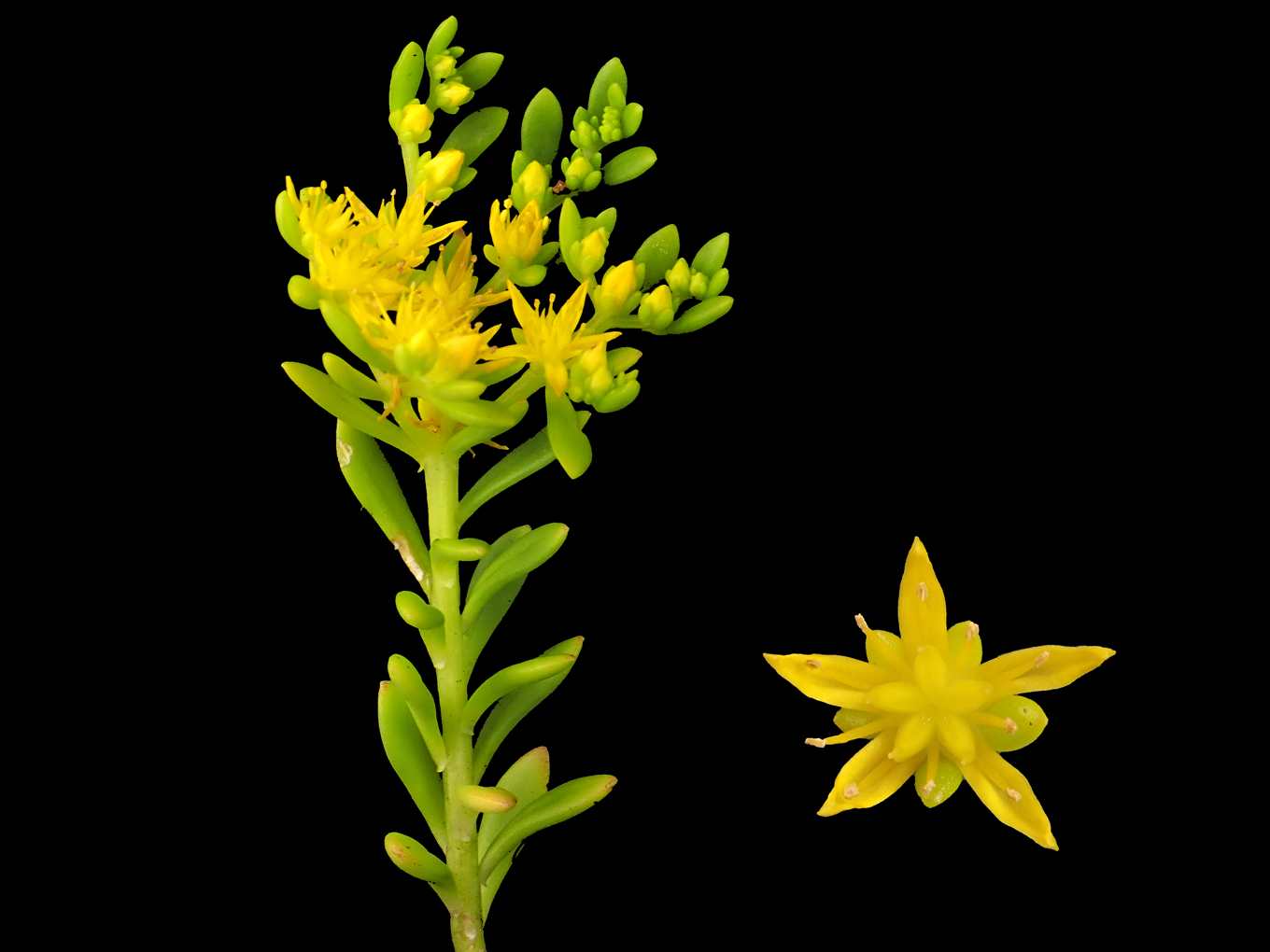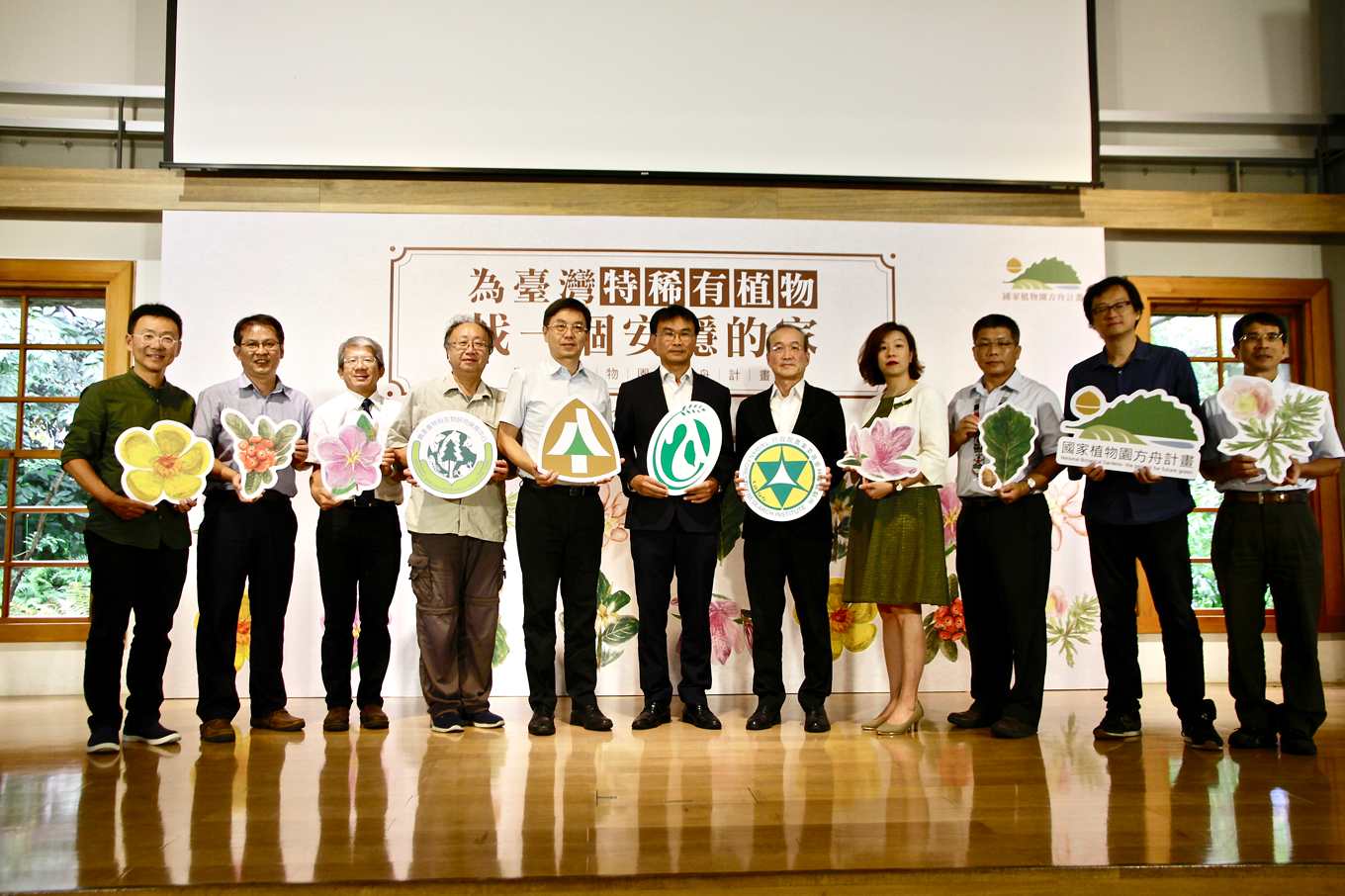Rescue endangered plants and send them to the ark! 400 million is invested in species conservation and restoration, and the botanical garden farm protects rare plants in senior high school.
43 shared.
Save endangered plants, botanical gardens, forest farms, high school campuses have become conservation gardens! The Forestry Research Institute of the Council of Agriculture announced yesterday (4) that the "National Botanical Garden Ark" project to strengthen the ex situ conservation of threatened species in Taiwan was officially launched. Six botanical gardens in China cooperated with seed conservation centers, forest farms, special health centers and Lanyu High School on outlying islands to provide rare plants in China as shelters.
The Ark Plan of the National Botanical Garden lasts for 4 years, from 108 to 111 years, with an annual budget of more than 90 million yuan, totaling 400 million yuan. It is coordinated by the inter-ministerial committee of the Forest Test Institute. There are about 5000 species of native plants in Taiwan, of which 1052 are endemic species. For 989 threatened plants named in the 2017 Red Book of Taiwan Vascular Plants, especially 110 high-risk plants not in protected areas or state-owned forest lands, The plants will be distributed to different botanical gardens or cooperative units according to their families. Each unit will collect plant samples for seed conservation. It is expected that 50-55% of threatened plants will be included in seed conservation within 4 years.

Taoyuan Shilongwei (Photo courtesy/Forest Testing Institute)
Plant conservation isn't in the ivory tower, it's in everyone's life.
The Global Plant Conservation Strategy 2020 (GCSP 2020) of the International Botanical Gardens Union (BGCI) aims to achieve ex situ conservation of at least 75% of threatened species. As a member of BGCI Conservation, Taiwan aims to preserve 500 threatened native plant species with a conservation rate of about 55%, and the current progress is 22%.
Chang Pin, director of the Forestry Research Institute, explains that the botanical gardens have collected 332 species, and that in addition to preserving plants, the six botanical gardens in the future will develop different characteristics and tasks. For example, Taipei Botanical Garden will be positioned as a metropolitan botanical garden, with functions for plant display and educational explanation; Lianhuachi Medicinal Botanical Garden will do historical interpretation, seed preservation and collection of native medicinal plants.
In addition to protecting these threatened species, Chang mentions that suitable species will be selected for horticulture, domesticated and propagated for horticultural promotion. In order to highlight the planned display function of the Taipei Botanical Garden, he will also cooperate with the Tien Central Joint Office to design a greenhouse. Other non-botanical garden partners use conservation to promote other functions.For example, Orchid Island High School uses local communities to participate in conservation work, so that conservation brings added value such as education and culture, so that the public is willing to participate.

Photo courtesy/Forest Testing Institute
Plants on the ark: peach garden stone dragon tail, Ryukyu dark Luo, etc.
The first plants to board the ark will be the Taoyuan Scolophora. Taoyuan Scolophora is endemic to Taiwan, and is distributed in the wetlands of Taoyuan's Longtan suburbs. However, in recent years, due to human activities, many wetland environments have been damaged. The original habitat of Taoyuan Scolophora has been destroyed, resulting in the extinction of wild populations. Currently, the Taipei Botanical Garden still has wild collected individuals of Taoyuan Scolophora, and the plant is currently on display.
A small number of plants and fruits were preserved and replanted in cooperation with Orchid Island High School and local tribes. Rhododendron wulai, native to Taiwan, is the only low-altitude riverbank rhododendron. After the construction of Feitsui Reservoir, its habitat was flooded. In recent years, it has been successfully replanted in botanical gardens and gradually brought back to the wild. In 1991, it was successfully removed from the list of rare plants.
For example, plants of ornamental value such as the Taitung fire thorn tree, which was originally planted along the banks of the Huatung river for a long time, have been reduced in number in recent years due to the dredging of river beds and horticultural collection, and are currently being replanted; the rare Shuisheh wild peony, which only appears in the Sun Moon Lake area at an altitude of 500-700 meters, and the Demuhua balsam flower, which is only distributed in the Kuanwu area, are currently spreading seeds on the experimental farm in the mountains of National Taiwan University, and are well adapted to growth.

Umilla ryukyuensis

Water Society Wild Peony_Jianrong
Energy-saving and environmentally-friendly plant new settlement
The architect Huang Shengyuan used glass covers and light control to create environments at different altitudes, and greenhouse groups created in different environments to present plant communities as a stage for national plant performance.
Huang Shengyuan mentioned that Taiwan is hot, but the greenhouse needs to maintain high light and low temperature, so the double-layer Low-E low-radiation glass used this time, the greenhouse in the high-altitude space has temperature control, and the structure itself has no concrete. In addition, there is a water wall, which can cool the room when the wind blows, and even the roof can adjust the light. The budget is about 90 million yuan. It is expected to start construction early next year and be completed within 2 years.

greenhouse
Every minute counts, conservation before extinction
Lin Xuhong, deputy director of the special growth center of one of the cooperative units, explained the actual operation mode. The plants assigned to the special growth center were Cyperaceae, Gramineae and Mosses. First, according to the threatened plants named in the Red Book, they went to the scene to collect seeds or plant parts. After returning to the special growth center, they were classified into high altitude, medium altitude and low altitude preservation space according to their growth environment.
After collection, the special center will preserve the seed or collected parts, and allow these threatened plants to reproduce and expand their populations by means of tissue culture or seed propagation. After the number of plants is out of the threatened area, it will evaluate whether they are horticultural. "Assigned to the Gramineae family, it's hard to garden because most of them look like weeds," the researchers said.
As for the operational difficulties, the Center for Special Growth mentioned that it is not easy to preserve the seeds of Gramineae, and they need to be renewed frequently, so it is not possible to collect them all at once. In addition, mosses also need to be preserved, but because they do not have vascular bundles, they are not listed in the Red Book, but they still need to collect them as much as possible from high mountains, because if they are listed in the Red Book, some threatened species may die out before they are listed.
Is horticulture possible? Dong Jingsheng: Careful seed conservation planning is needed
Is it possible for threatened plants to enter public gardens or flower beds after they have been rehabilitated and have the opportunity to be gardened? In response, Dong Jingsheng, head of the Botanical Garden of the Forestry Research Institute, who implemented the plan, said: "There is an opportunity, so now there should be more careful consideration in the conservation planning."
Dong Jingsheng explains that before rare plants are horticultured, if there is no supporting plan, they may be over-collected due to their high market value, resulting in fewer populations. tung ching sheng explains that at present the world is paying attention to how local residents can participate in conservation. two considerations must be taken into account: one is that the provenance of species must not be confused, and the other is whether local residents can promote conservation on a regional basis.
Provenance should not be confused, that is, the gene of a local species should not be spread to a more distant region, for example, the gene in the north cannot run to the south, especially in horticulture, breeding excellent varieties that can be popularized will lead to narrowing of the gene of the original species. In addition, it is necessary to consider suitable planting, not necessarily home can create a suitable environment for rare plants.
Regional outreach to local populations, for example: academic units in Central and South America teach community women and children to grow rare plants to improve the lives of community residents, so the forestry laboratory does not want to flood the country with "plant hunters"(rare plant collectors). Dong Jingsheng said that the ideal situation is that communities or schools, under the integration of government departments, abide by certain ethical norms, and promote them in the name of communities or schools after collection.

Impatiens dimuhua

Sedum shidingense
Farmland is habitat, threatened plants today may be cash crops tomorrow
Chen Chi-chung, chairman of the Council of Agriculture, believes that agriculture and conservation are inextricably linked. Agricultural land not only plays a role in food production, but also serves as a habitat for plants. Once habitat is destroyed and plant conservation is damaged, future agricultural production will also be affected.
If the agricultural sector wants to carry out plant conservation, the premise is that farmland must be farmed. Take rice as an example. Apart from being used as food, it can also conserve underground water sources. As an ecological habitat, only calculating the value of the produced crops will underestimate its importance. In order to implement agricultural land use, the earliest will be next year to pay for the actual agricultural land.
In addition to farmland, Chen Chi-chung mentions that the Forestry Bureau is currently implementing the National Land Green Net Project to investigate the biodiversity of Taiwan. In the future, there will also be ecological benefits. At present, Shi Hu will start first, and then the results of the investigation will be fully publicized to let the people know the value of biodiversity.
The National Development Council has provided more than 400 million yuan in funding for the plant ark project. Chen Chi-chung stresses that he will continue to fight for funding, because the implementation costs are numerous, for example, if the species outside the conservation area are on private land, they will need to rely on incentives to encourage landlords to cooperate, and the government's budget allocation depends on public concern.

Photo taken by participants (sixth from left) Chen Jizhong, Chairman of the Council of Agriculture (Photo/Lin Yijun)
- Prev

The crabs are fat in the autumn wind, and the crabs are here.
Time flies, next week is the Mid-Autumn Festival!? Around the Mid-Autumn Festival is the transition period between Taiwan's southwest monsoon and northeast monsoon. The weather changes greatly, but it is also the fattest season for crabs. Crab fishermen are watching walruses one after another, thinking about the northwest sea area.
- Next

Xia Yun's record-- an investigation on the sweetness and bitterness of Sugarcane Farmers in Changhua
Xia Yun's record-- an investigation on the sweetness and bitterness of Sugarcane Farmers in Changhua
Related
- A course of planting techniques and methods on how to grow carrots
- How to plant the latest tulips?
- Is it better to pick tea in the morning or in the afternoon? When is the best time for tea to be picked? what is the third or fifth tea?
- Launch Yuanxiao Happy combination Haocha + Tea Yuan healthy Taste
- Penghu Tourism "Fireworks 20 Parade with You"
- 2022 West Lake Happiness holds "Digital Revitalization Voucher" and draws iphone13 and laptop.
- Banqiao Fuzhou social houses are designed to change start-up combined with police elimination to create a safe and livable environment
- The convenient measure of "mechanical weeding" in Xinbei has been abused and the Agriculture Bureau has imposed heavy penalties on the illegal land consolidation.
- Changgeng University Joins Hands with Four Memory Factories to Rescue Memory Talent Shortage
- The list of Taiwan's top 100 MVP managers is listed by the Director-General of the Farmers' Association of Sanxia District.

